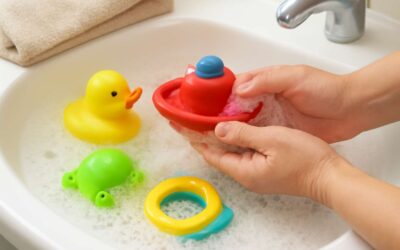Are baby toys tax free? Understanding sales tax exemptions for infant products
In the quiet corners of parental necessity, a question looms larger than one might expect: are baby toys tax free? It’s a deceptively simple inquiry with profound implications. Babies are fragile, almost sacred in their innocence; yet, the world surrounding them is riddled with complex regulations and fiscal paradigms. Perhaps it’s no surprise that many parents and retailers alike wrestle with understanding whether these essential items come with hidden costs.
Throughout history, infant products have been viewed not just as commodities but as moral imperatives. They symbolise hope, the promise of a better future, and the instinct to nurture and protect. It’s tempting, then, to assume that society extends this protection in tangible ways—like tax exemptions. But the truth isn’t always straightforward. Some jurisdictions do offer certain tax reliefs on baby products, especially those deemed essential, thereby reducing economic strain at a pivotal moment in a child’s earliest development. Yet, what qualifies as an “essential” item remains subject to legislative nuance.
For instance, many regions consider certain baby toys exempt from sales tax if they can be classified as educational or developmental tools—aimed at fostering cognitive and motor skills. Nonetheless, mere novelty toys often escape this exemption. The intricacies of sales tax exemptions for infant products reveal a layered interplay between social policy, economic strategy, and moral obligation.
Understanding whether are baby toys tax free becomes more than just a matter of dollars and cents—it touches the core of societal values. Are we, as a community, committed to easing the financial burden on families? Or are certain items, even those vital to a child’s growth, still subject to the relentless march of fiscal regulation? The answers lurk within legal texts and policy documents, yet their implications ripple far beyond the page.
In this landscape of fiscal paradoxes, the question remains: are baby toys tax free? The answer is as intricate as the human psyche itself, revealing our collective willingness—or unwillingness—to support the tiniest architects of our future.
How to determine if baby toys are exempt from sales tax in your state
In the labyrinth of commerce, few questions stir as much moral and legal contemplation as whether those innocent-looking baby toys are truly tax free. With families investing precious resources into their children’s earliest moments, the last thing parents want is an unwitting overpayment amplified by overlooked regulations.
Statistics reveal that a significant portion of consumers remain unaware of the nuanced distinctions surrounding sales tax exemptions. This unawareness subtly erodes financial trust and casts shadows of doubt on the fairness of local tax systems. An erudite understanding of “are baby toys tax free” becomes not merely an act of fiscal prudence but a moral imperative—one that aligns economic transparency with familial well-being.
To discern if a particular toy qualifies for tax exemption, one must circumnavigate the often opaque regulatory landscape. First, review state-specific tax codes; these documents are the repositories of precise definitions. Many jurisdictions specify that certain educational or developmental toys are exempt from sales tax, yet others strictly classify only particular items as duty-free. Understanding the classification of the toy in question—whether it’s categorised as a basic amusement item or an educational tool—is fundamental.
Furthermore, inspecting the product’s description and packaging can unlock subtle clues. Products labelled as “educational,” “developmental,” or “age-appropriate learning tools” are more likely to be considered tax exempt. However, many states require that these items meet specific criteria, such as being primarily designed for learning rather than entertainment.
Another crucial aspect is examining whether the retailer possesses a tax exemption certificate for certain categories of products. Sometimes, wholesale purchases or specialised vendors have explicit permission to sell tax-free items, which can influence the tax status of baby toys.
Ultimately, determining if baby toys are tax free in your state demands a meticulous, almost meditative. It involves understanding the intersection of law, commerce, and human development—where each detail can make a profound difference in how we nurture trust and fairness in our economy.
Tips for purchasing tax-free baby toys and saving money on infant essentials
In a world where every penny counts, the desire to stretch your budget is more than just prudent – it’s a moral imperative. As parents or guardians, we wrestle with the fine line between necessity and luxury, aware that each expenditure shapes not only our finances but also our child’s future. It’s intriguing to note that over 60% of consumers overlook the fact that they might be missing out on tax-free shopping opportunities—opportunities that could make a tangible difference in the cost of infant essentials.
Economic restraint is often viewed through the lens of austerity, but beneath that, there lies a deeper question: how do we navigate the labyrinth of costs without sacrificing the quality and safety our little ones deserve? The answer resides in navigating the intricacies of tax laws, understanding how to capitalise on the rules that make certain purchases tax-free.
Are baby toys tax free? The simple truth is that, in many cases, yes. Certain essential items, especially during sale periods or when purchased through designated schemes, can be exempt from VAT or sales tax. However, the devil is in the detail: not all baby products qualify, and knowing which ones do can shift the financial equation significantly. Fusing ingenuity with awareness, savvy parents and carers hunt down market opportunities—special discount days, online voucher codes, or even specialised tax-free shops—that transform routine buying into strategic saving.
The real challenge lies in recognising which infant essentials are eligible for tax-free status. For instance, British legislation often exempts basic baby clothing, nappies, and some toys from VAT. But here’s the kicker—many people don’t realise that occasional promotional offers or specific retail schemes can amplify these savings exponentially. It’s about cultivating an almost instinctual awareness of the market’s undercurrents, turning knowledge into a weapon against unnecessary expenditure.
In this dance of commerce and conscience, understanding whether specific baby toys are tax free can tip the scales in your favour. It’s not just about saving money—it’s about asserting control over an environment flooded with relentless marketing and inflated costs. In the end, it’s an existential act: safeguarding their innocence without surrendering one’s integrity to the relentless tide of consumerism.



0 Comments